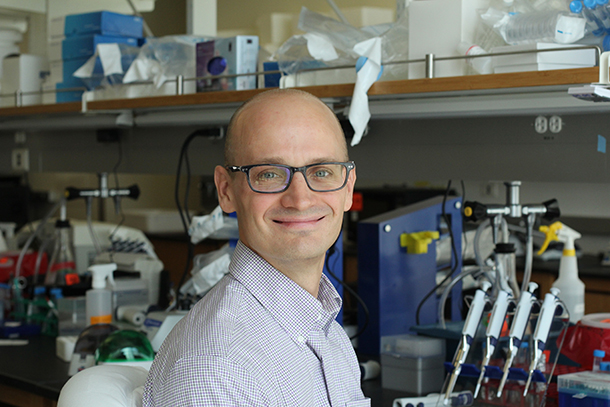Wisdom can increase with age, but healing power does not. USC Stem Cell scientist Joseph T. Rodgers, PhD, is exploring the biology behind this fact, thanks to a grant from the American Federation for Aging Research (AFAR).
The grants provide $100,000 of flexible support to early-career researchers focused on aging processes and age-related diseases. Since 1981, AFAR, which is a national nonprofit organization, has awarded more than 700 of these awards to junior faculty at the critical juncture in their career development when research funding is most difficult to obtain.
“AFAR has been a cornerstone of aging research,” said Rodgers, assistant professor of stem cell biology and regenerative medicine at the Keck School of Medicine of USC. “As a junior faculty, funding from AFAR means support and encouragement for my thought process and approach to studying aging.”
Rodgers’ project will explore how healing becomes impaired during aging—making a simple injury such as a broken bone a complicated ordeal for many who are elderly. As stem cells age, they lose their ability to regulate their cellular metabolism, or the chemical reactions needed to maintain life. This diminishes their ability to respond to the chemical signals instructing them to heal and repair damaged tissue. The Rodgers Lab will investigate both the process of onset and the molecular basis of this dysregulated metabolism in aged stem cells.
Eventually, Rodgers hopes that these discoveries will inform therapies to improve healing in the elderly.
“Support from AFAR is a clear sign of the high quality of research that a scientist is conducting in aging,” said AFAR’s Scientific Director, Steven N. Austad, PhD, distinguished professor and chair of the Department of Biology at the University of Alabama at Birmingham.
Rodgers’ research addresses what is becoming an increasingly important challenge of the 21st century, as demographics shift and more and more Baby Boomers pass their 65th birthdays.
“AFAR’s Biology of Aging Grants,” said the organization’s Executive Director Stephanie Lederman, “help create a career pipeline that is essential to advancing better medicine for age-related diseases and discoveries that will help us all live healthier and longer.”


